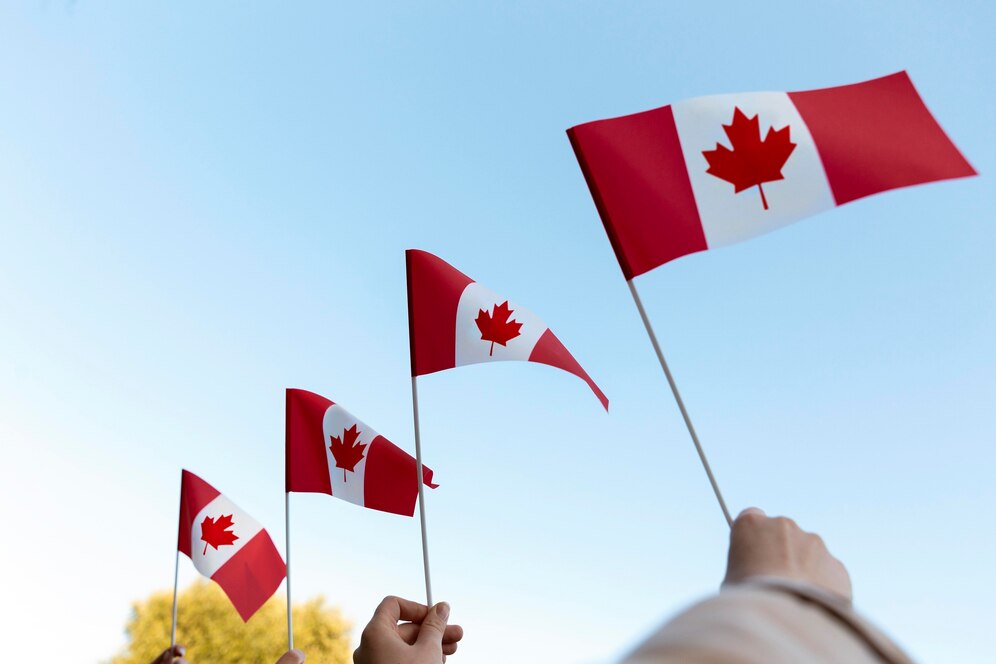Canada, renowned for its welcoming stance towards international students, is undergoing a significant policy change that affects how graduates can apply for post-graduation work permits (PGWPs). This shift marks the end of a practice known as ‘flag poling’, where students could obtain their work permits at border crossings. While this change aims to streamline immigration processes, it introduces new challenges for students aiming to start their careers in Canada immediately after graduation. Canada New Policy
LATEST UPDATE
In November and December 2024, Canada implemented significant changes to its Post-Graduation Work Permit (PGWP) program, impacting international students. Here’s what you need to know:
NEW UPDATES 2024
Eligibility Criteria Updates:
Program of Study: Effective November 1, 2024, international students must enroll in programs aligned with Canada’s labor market needs to qualify for a PGWP. This change aims to ensure that graduates possess skills in demand within the Canadian economy.
Economic Times
Language Proficiency: New language proficiency requirements have been introduced to ensure that international students possess the necessary language skills to succeed in the Canadian workforce.
Gands
Work Permit Duration:
Master’s Degree Graduates: Effective February 15, 2024, students graduating from master’s programs of at least 8 months (but less than 2 years) are eligible for a 3-year PGWP. This extension provides graduates with more time to gain valuable Canadian work experience. Government of Canada
Institutional Compliance:
Designated Learning Institutions (DLIs): Institutions failing to comply with reporting requirements may face suspensions, preventing them from accepting new international students for up to a year. This measure ensures that DLIs maintain high standards and support the integrity of the International Student Program. Government of Canada
Implications for International Students:
Program Selection: Prospective students should carefully choose programs that meet the new eligibility criteria to ensure PGWP eligibility upon graduation.
Policy Awareness: Staying informed about these changes is crucial for compliance and to maximize opportunities for work experience in Canada post-graduation.
These policy updates reflect Canada’s commitment to aligning educational outcomes with labor market demands, ensuring that international students contribute effectively to the Canadian economy.
Canada: A Popular Destination for International Students
In recent years, Canada has emerged as a top choice for international students seeking quality education and promising career opportunities. In 2023 alone, the country hosted over 1 million international students, a testament to its educational excellence and supportive environment for post-graduation employment. Canada New Policy

The End of Flagpoling: What Does It Mean?
Previously, flag poling allowed students to apply for PGWPs conveniently at border crossings, often receiving their permits within a day. This method was favored for its speed and direct interaction with immigration officials, which facilitated quick issue resolution. However, the practice strained border resources, leading to the recent policy change. Canada New Policy
Now, students must navigate the traditional application process through Immigration, Refugees, and Citizenship Canada (IRCC), which can be slower and more complex. This shift could result in delays obtaining work permits, impacting students’ ability to secure employment right after completing their studies.
Impact on International Students and the Canadian Labor Market
The decision to end flagpoling could potentially deter some international students from choosing Canada for their studies. The uncertainty and extended wait times for work permits might discourage students who prioritize a seamless transition into the workforce post-graduation. This change comes at a time when other countries, such as the United States, the United Kingdom, and Australia, are enhancing their post-study work visa options to attract global talent.
Canada’s Post-Study Work Permit Policies in Context
Compared to its peers, Canada has historically been proactive in offering pathways for international graduates to gain work experience and possibly settle permanently. The PGWP program was designed precisely for this purpose, acknowledging the contributions of international talent to Canada’s economy and society.
What International Students Should Do Now
In light of these changes, international students planning to study in Canada should adopt a proactive approach to their post-graduation plans:

Early Preparation:
Start planning for the post-graduation phase early in your educational journey. Engage with career counseling services, attend job fairs, and network with potential employers during your studies.
Stay Informed:
Keep abreast of any updates from IRCC regarding policy changes and application processes. Maintaining updated documentation and understanding the evolving landscape can prevent surprises and setbacks.
Consider Alternatives:
While Canada remains a viable option for international students, explore alternative study destinations that offer favorable post-graduation work opportunities, depending on your career goals and aspirations.
Frequently Asked Questions (FAQs) about Canada’s New Policy on Post-Graduation Work Permits for International Students:
What is a post-graduation work permit (PGWP)?
A PGWP is a type of work permit that allows international students who have graduated from a designated Canadian educational institution to work in Canada.
Why did Canada end flag poling for PGWPs?
Flag poling was ended to streamline immigration processes and allocate resources more efficiently at border crossings.
How can international students apply for a PGWP now?
International students must apply through the traditional application process with Immigration, Refugees, and Citizenship Canada (IRCC) from within Canada.
Will ending flag poling affect the processing time for PGWPs?
There may be delays initially as students transition to the new application process. However, IRCC aims to improve efficiency over time.
Can international students still work after graduation in Canada?
Yes, international students can still apply for a PGWP to gain valuable Canadian work experience after completing their studies.
Are there alternatives to the PGWP for international students?
Alternatives may include provincial nomination programs, employer-specific work permits, or applying for permanent residency through Express Entry or other immigration streams.
How long is a PGWP valid for?
The validity of a PGWP depends on the length of the study program. Generally, it can be valid for up to three years.
Can international students apply for permanent residency through the PGWP?
Yes, gaining Canadian work experience through a PGWP can enhance an international student’s eligibility for permanent residency under various immigration pathways.
Does ending flag poling affect other types of visas or permits for international students?
The policy change specifically impacts the application process for PGWPs and does not directly affect other types of visas or permits.
What should international students do if they are already in Canada and planning to apply for a PGWP?
They should follow IRCC guidelines for the new in-country application process and ensure all required documentation is prepared and submitted accurately.
How can international students stay updated on changes to Canadian immigration policies?
Monitoring updates from IRCC’s official website, subscribing to newsletters, or consulting with authorized immigration professionals are recommended.
Will the policy change affect international students currently studying in Canada?
The policy change primarily impacts future applicants for PGWPs. Current students should follow existing rules and regulations until they graduate.
Does Canada still welcome international students despite these changes?
Yes, Canada remains committed to welcoming international students and offers various pathways to study, work, and potentially settle permanently.
Can international students apply for a work permit after graduating from a Canadian institution outside Canada?
No, international students must be physically present in Canada to apply for a PGWP under the new guidelines.
Who can international students contact for more information or assistance with their PGWP application?
International students can contact IRCC directly through their website or seek advice from authorized immigration consultants or lawyers specializing in Canadian immigration law.
Conclusion: Canada’s decision to end flag poling for post-graduation work permits represents a significant shift in its immigration policy aimed at improving efficiency and resource allocation at border crossings. While this change introduces challenges for international students, such as potential delays in obtaining work permits, Canada remains committed to supporting global talent.
As international students navigate these new developments, proactive planning and staying updated on immigration policies will be essential. Despite these adjustments, Canada’s reputation for high-quality education and welcoming environment remains strong. By taking early steps to prepare for the post-graduation phase and exploring alternative pathways, students can continue to pursue their educational and career aspirations in Canada effectively.
For the latest updates and detailed guidance on Canadian immigration policies, students are encouraged to consult Immigration, Refugees, and Citizenship Canada (IRCC) or seek advice from authorized immigration professionals. Keeping informed ensures that students can make informed decisions and maximize their opportunities in Canada’s dynamic academic and professional landscape. For more information contact us now.

Disclaimer
The information provided in this blog post is based on the current understanding of Canada’s immigration policies. Immigration regulations and procedures can change periodically. For the most up-to-date information and official guidance on post-graduation work permits and other immigration matters, please refer to Immigration, Refugees, and Citizenship Canada (IRCC) or consult with authorized immigration professionals.
Source: www.financialexpress.com
- Canada’s Latest Express Entry Draw: Provincial Nominee Program PR Invitations
- The Rise and Challenges of Canada’s Temporary Foreign Worker Program
- Comprehensive Guide to Canada’s Express Entry Draw Results and the Provincial Nominee Program
- How has the Canada Citizenship Scheme changed over the years?
Also read:
- Why Canada’s 32% Drop in Study Permits for Indian Students in 2024 Could Affect Your Future Plans
- Canada Launches Rural and Francophone Community Immigration Pilots: A New Era for Skilled Immigrants
- Canada Expands Post-Graduation Work Permit (PGWP) Eligibility: A Gateway to Endless Opportunities for Indian Students
- Canada Takes Action to Combat Fraud in the Express Entry System
- Canada Announces Big Changes to Express Entry Immigration System: What It Means for Indian Aspirants



